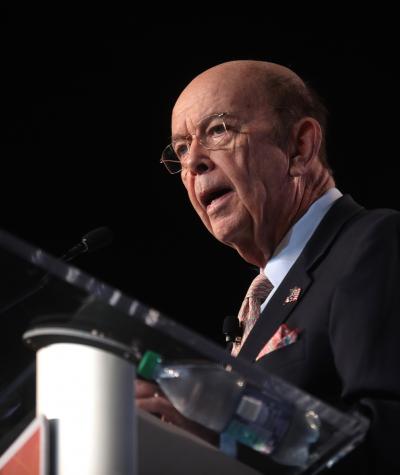More than two years after CLC filed a 115-page complaint with the Department of Commerce Inspector General asking for an investigation into Secretary of Commerce Wilbur Ross’ many apparent conflicts of interest, the inspector general has issued its report, finding that Secretary Ross did, in fact, violate ethics rules designed to protect the public’s trust in government.
Incoming Biden administration officials should use Secretary Ross’ troubles as a cautionary tale—and an opportunity to demonstrate that the Biden administration will take ethics requirements seriously as they fill out their financial disclosures and assess conflicts of interests in the coming weeks and months.
Secretary Ross was found to have repeatedly failed to avoid actions that would create the appearance of unethical conduct, a violation of federal regulations that mandate ethics standards for executive branch employees.
On one occasion, Secretary Ross engaged in oil and gas industry export negotiations related to increasing U.S. exports of liquified natural gas to China while owning assets in the oil and gas industry sector, without gaining prior approval from ethics officers.
Specifically, Secretary Ross participated in a summit at Mar-a-Lago, President Trump’s private club, with Chinese officials, where natural gas exports were discussed. He then continued to work on these export issues with Chinese officials after the summit.
Due to his oil and gas holdings and various past business dealings, he was supposed to be disqualified from matters relating to the energy sector and was required to seek ethics advice before working on matters related to China.
On another occasion, Secretary Ross shorted the sale of stock in Navigator Holdings, a shipping firm, that posed a possible conflict of interest only after learning that The New York Times was running a story on his stock ownership and his dealings with the company.
Secretary Ross also failed to timely divest from assets he promised he would divest in his ethics agreement.
While the inspector general did not find that Secretary Ross committed knowing and willful violations of conflict of interest laws, his vague and inconsistent filings raised questions about whether the financial interests of a wealthy cabinet secretary influenced administration policies affecting American companies.
It is essential that the incoming executive branch officials take this investigation to heart. It may have taken the inspector general years to disentangle the web of Secretary Ross’ possible conflicts of interests, but he has been unique, in his carelessness related to his conflicts of interest and ethics compliance.
We should expect more from our public servants, especially those with as much power and influence as the secretary of commerce.
The public deserves transparency and accountability when it comes to financial disclosure and conflicts of interests. The Biden administration should be prepared to flip the script on ethics by endeavoring at every turn to go above and beyond the bare minimum required by law.
This includes divesting assets that may pose even the appearance of a conflict with an official’s duties and having frequent candid discussions with ethics officials when conflicts arise.

